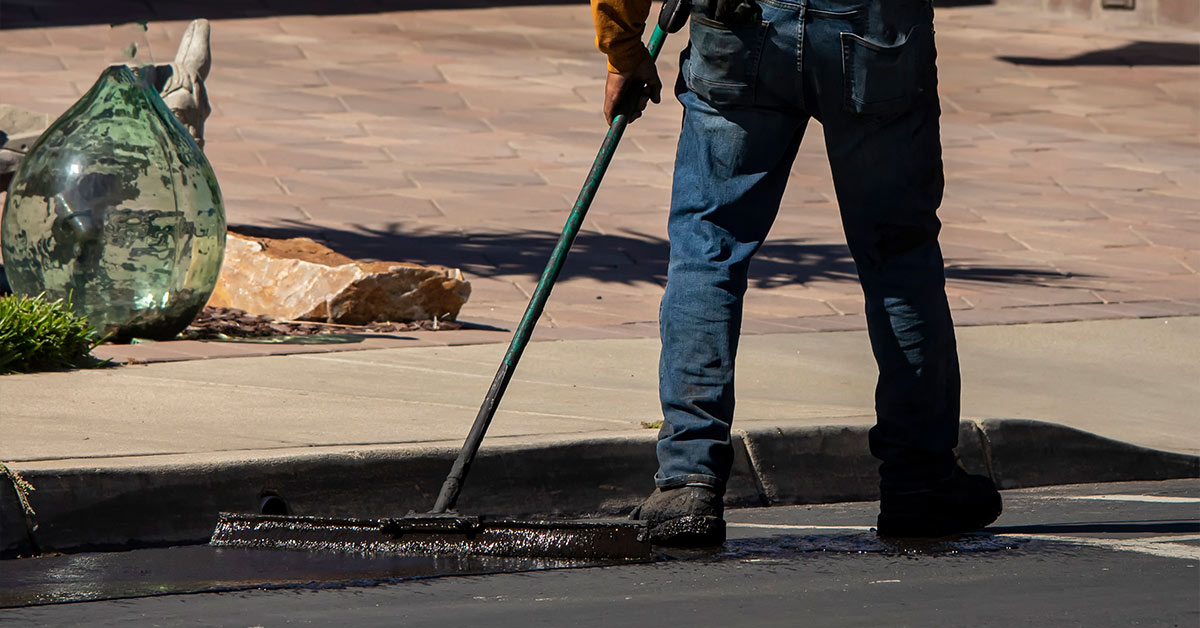When it comes to protecting commercial pavements from extreme weather, choosing the right material can make all the difference. Asphalt and concrete are two of the most popular options, but they react differently to extreme weather conditions. Understanding how each material performs under pressure can help you make the best decision for your commercial pavement, and ultimately, your property.
Asphalt: Built for Flexibility, But Watch the Heat
Asphalt is known for its flexibility, which is a major advantage in regions with fluctuating temperatures. During colder months, asphalt can expand and contract without cracking as easily as concrete might. This makes it an excellent choice for areas where freeze-thaw cycles are common.
However, heat can be asphalt’s Achilles’ heel. Prolonged exposure to high temperatures can cause the surface to soften, which may lead to ruts and surface damage under heavy traffic. The good news is that regular sealcoating can offer some protection, keeping the surface stable and resistant to sun and heat damage. With proper care, asphalt holds up well even in challenging climates.
Concrete: Stronger Under Pressure, But Beware of the Cold
Concrete’s strength and rigidity make it a solid choice for commercial pavements, especially in areas with high heat. Unlike asphalt, concrete doesn’t soften under the sun’s glare. Its lighter color also reflects heat, which can keep the pavement cooler during the summer months.
Cold weather, though, is where concrete faces its challenges. Without proper treatment, freezing temperatures can cause cracks or surface scaling. Water that seeps into the concrete and freezes can expand, leading to damage over time. Applying a weather-resistant sealant helps, but regular inspections are key to catching potential issues early.
Moisture Matters: How Each Material Handles Water
Both asphalt and concrete need to stand up to water, whether it’s from heavy rains, snowmelt, or high humidity. Asphalt’s dark, non-porous surface sheds water easily, reducing the risk of puddles and standing water. But over time, small cracks can allow moisture to seep in, potentially weakening the base. That’s why proactive crack filling and proper drainage systems are so important.
Concrete, on the other hand, is naturally porous. While this allows it to absorb some moisture, it also means untreated surfaces can be more vulnerable to damage. Applying a sealant creates a barrier against water, extending the life of the pavement and minimizing the risk of issues like freeze-thaw damage.
The Bottom Line: What’s Best for Your Property?
Both asphalt and concrete have their strengths and weaknesses when it comes to weatherproofing. If your commercial property is in a region with extreme heat, concrete’s durability and heat resistance might give it the edge. In areas with harsh winters or rapid temperature changes, asphalt’s flexibility can make it a better option.
No matter which material you choose, ongoing maintenance is essential to keep your pavement in top condition. Regular cleaning, timely repairs, and professional sealing treatments can help both asphalt and concrete stand up to the elements and stay functional for years to come.
Let Wright Construction Help You Weather the Storm
At Wright Construction, we specialize in creating and maintaining asphalt and concrete pavements designed to withstand the toughest weather conditions. With over three decades of experience across the Southeast, we know how to tailor solutions to meet the unique challenges of your location.
Whether you’re starting from scratch or need help maintaining an existing pavement, our team is here to ensure your investment lasts. Contact us today to discuss your project and learn how we can help you weatherproof your commercial property.
